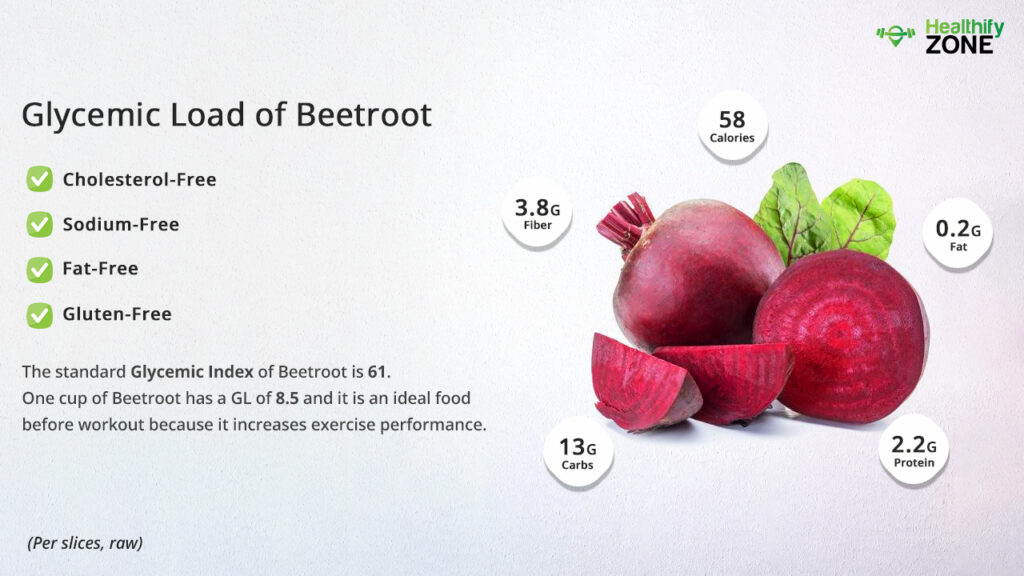The glycemic index (GI) of beetroot is 61, which is categorized as medium. The GI gauges how quickly blood sugar levels increase following a meal. Beetroots have a very low (5%) glycemic load. Beetroot, also referred to simply as beet, is one of those vegetables that people either love or detest. This root vegetable’s rich flesh, which is naturally sweet and filling, gives salads and soups a unique flavor.
The glycemic load of 1 beetroot is only 4.7 since it only has 7.4 g of CHO. Root vegetables like beets are incredibly high in phytonutrients. These phytonutrients include betalains, which give beetroot its vivid red color and have been shown to have health advantages.
Is Beetroot Safe for Diabetes?
Beetroot has a medium (64), low glycemic index but a 4.7 glycemic load. Therefore, beets could be a part of a diabetic-friendly diet to help maintain stable blood glucose levels. A distinctive carbohydrate profile is present in beets. Even though it contains the most sugar of any vegetable, the effect of one medium-sized beetroot on levels of blood glucose is minimal because it only contains 7.4 g of CHO and 3 g of fiber. One medium-sized beet contains 3g of fiber, which aids in regular bowel movements and maintains the health of the digestive system. Beetroots are a very rich source of dietary nitrates, which have a vasodilator effect and help lower blood pressure.

Is Beetroot Suitable for Weight Loss?
A medium-sized beetroot has just 37 calories and 3g of fiber. In order to drop a few extra pounds, this serves as a particular complement to the diet. Fiber-rich food passes more slowly through your digestive system, keeping you fuller for longer after eating. This encourages satiety and controls your appetite. It aids in decreased calorie intake as a result. To reduce nutrient loss, start mixing raw beets into your salad.
What is the Best time to Consume Beetroot?
It is recommended to drink beet juice first thing in the morning or an hour before breakfast. To get all of its advantages, sip a 200 ml glass of beetroot juice every day. But consume it right away to preserve the juice’s nutritional worth.
The Bottom Line: The Glycemic Index of Beetroot is 61.
Beetroot is a nutrient that may help control blood sugar levels, reduce the chance of developing chronic diseases, and manage diabetes complications. From diarrhea to fever, beets are used for ages to cure a variety of ailments.
The term “superfood” is frequently used to describe these jewel-toned root vegetables. Potassium, folates, and other elements that are beneficial to your overall health are abundant in beetroot. Beets, however, may be especially advantageous for diabetics.